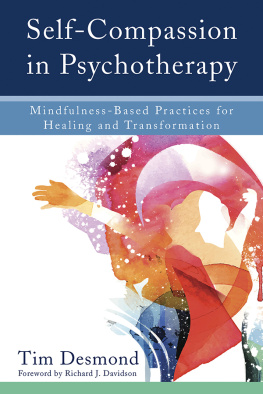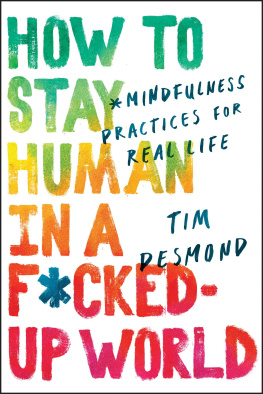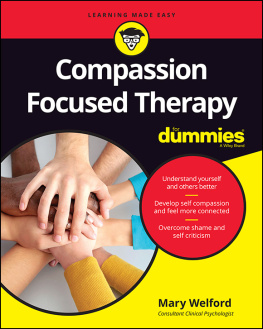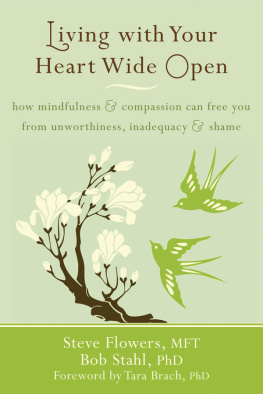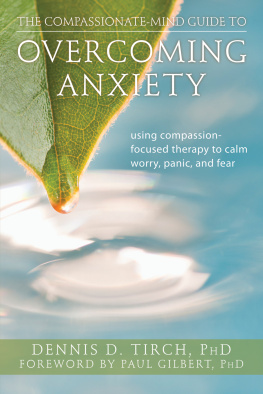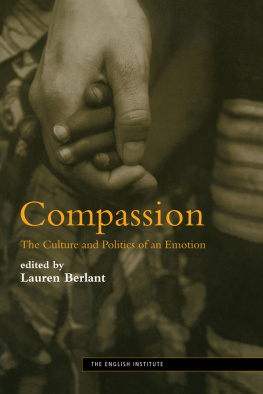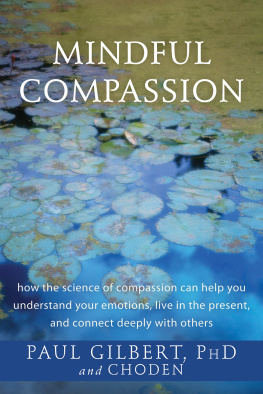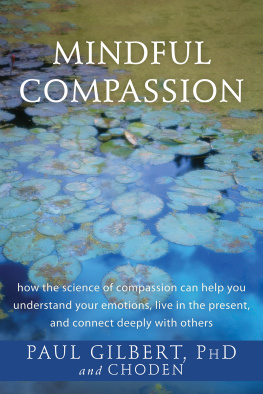Tim Desmond - Self-Compassion in Psychotherapy: Mindfulness-Based Practices for Healing and Transformation
Here you can read online Tim Desmond - Self-Compassion in Psychotherapy: Mindfulness-Based Practices for Healing and Transformation full text of the book (entire story) in english for free. Download pdf and epub, get meaning, cover and reviews about this ebook. year: 2015, publisher: W. W. Norton & Company, genre: Religion. Description of the work, (preface) as well as reviews are available. Best literature library LitArk.com created for fans of good reading and offers a wide selection of genres:
Romance novel
Science fiction
Adventure
Detective
Science
History
Home and family
Prose
Art
Politics
Computer
Non-fiction
Religion
Business
Children
Humor
Choose a favorite category and find really read worthwhile books. Enjoy immersion in the world of imagination, feel the emotions of the characters or learn something new for yourself, make an fascinating discovery.
- Book:Self-Compassion in Psychotherapy: Mindfulness-Based Practices for Healing and Transformation
- Author:
- Publisher:W. W. Norton & Company
- Genre:
- Year:2015
- Rating:5 / 5
- Favourites:Add to favourites
- Your mark:
Self-Compassion in Psychotherapy: Mindfulness-Based Practices for Healing and Transformation: summary, description and annotation
We offer to read an annotation, description, summary or preface (depends on what the author of the book "Self-Compassion in Psychotherapy: Mindfulness-Based Practices for Healing and Transformation" wrote himself). If you haven't found the necessary information about the book — write in the comments, we will try to find it.
Applying the art and science of self-compassion to day-to-day therapy work.
This lucidly written guide integrates traditional Buddhist teachings and mindfulness with cutting-edge science from several distinct fieldsincluding neurobiology, cognitive neuroscience, psychotherapy outcome research, and positive psychologyto explain how clinicians can help clients develop a more loving, kind, and forgiving attitude through self-compassion.The practice of self-compassion supports effective therapy in two vital ways: (1) It helps clients become a source of compassion for themselves; and (2) it helps therapists be happier and generate more compassion for their clients.
Researchers now understand that self-compassion is a skill that can be strengthened through deliberate practice, and that it is one of the strongest predictors of mental health and wellness. The brains compassion center, which neuroscientists call the Care Circuit, can be targeted and fortified using specific techniques.
Filled with illuminating case examples, Self-Compassion in Psychotherapy shows readers how to apply self-compassion practices in treatment. The first two chapters illuminate what self-compassion is, the science behind it, and why it is so beneficial in therapy. The rest of the book unpacks practical clinical applications, covering not only basic clinical principles but also specific, evidence-based techniques for building affect tolerance, affect regulation, and mindful thinking, working with self-criticism, self-sabotage, trauma, addiction, relationship problems, psychosis, and more, and overcoming common roadblocks.
Readers do not need to have any background in mindfulness in order to benefit from this book. However, those that do will find that self-compassion practices have the capacity to add new layers of depth to mindfulness-based therapies such as Dialectical Behavior Therapy (DBT), Acceptance and Commitment Therapy (ACT), Mindfulness-Based Stress Reduction (MBSR), and Mindfulness-Based Cognitive Therapy (MBCT).
Tim Desmond: author's other books
Who wrote Self-Compassion in Psychotherapy: Mindfulness-Based Practices for Healing and Transformation? Find out the surname, the name of the author of the book and a list of all author's works by series.

